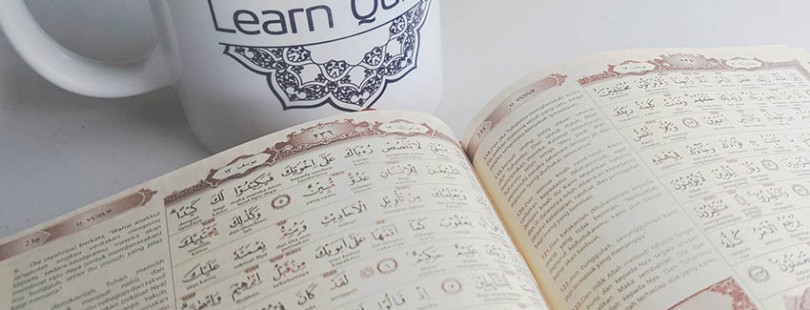Allah stated,
“And when We said to the angels, ‘Prostrate to Adam!’ and they prostrated, but Iblis (did not). He was of the jinn so he departed from the command of his Lord. Then will you take him and his descendants as allies other than Me while they are enemies to you? Wretched it is for the wrongdoers as an exchange.”
[Quran 18: 50]
*
One of interesting issues to talk about, even actually it has no essential effect to our faith, is the question about the origin of Iblis. Was he an angel or a jinn? In some Western literatures, even it is not mentioned literally in Torah, Bible nor Quran, we find the term “fallen angels”, which refers to angels who were expelled from Heaven for showing disobedience and ungratefulness to God. They were originally created to believe in God and serve him, but now they are enemies to both him and humanity. Was Iblis one of those fallen angels?
Honestly, some Islamic scholars believed it. This opinion is actually based on some Israiliyyat (Israelites’ traditions), which mentioned that the name of Iblis was “Azazil” and he used to live on the earth. He was one of the strongest of the angels in terms of knowledge and intelligence. Responding Israiliyyat, Ibn Hajar Al-Asqalani (d. 1449 CE) said that if those known to be true because the revelation to the Prophet Muhammad, we confirm them. And if those not known to be true or false, we may tell them without saying whether they are true or false. But if those known to be false, because the revelation to our Prophet, we must reject them.
Nonetheless we cannot accept this Israiliyyat particularly because in chapter of Al-Kahf verse number 50, Allah clearly stated, “He was a jinn so he departed from the command of his Lord” (kana min al-jinn fa-fasaqa ‘an amri Rabbihi). This is a crystal clear evidence supporting the opinion that Iblis was not an angel. It is just because the conjunction “fa” in the Arabic text is indicative of the reason. Fakhruddin Al-Razi (d. 1210 CE) explained, “The sentence ‘He was of the jinn’ indicates that Iblis’ disobedience to prostrate wasbecause he was a jinn.” On the contrary we saw that angles never disobey Allah’s commands. Allah describes them, “…who disobey not, from executing the Commands they receive from Allah, but do that which they are commanded.” [Quran 66:6].
Simultaneously, there are a number of differences between Iblis and angels. Our Prophet mentioned them as two different creatures when he said, “The angels were created from light, Iblis was created from smokeless fire, and Adam was created from that which has been described to you.” [Muslim]. Angels also do not have any descendants whereas Jinn have. Allah said: “Then will you take him and his descendants as allies other than Me while they are enemies to you?” [Quran 18:50]
Furthermore, those Islamic scholars who held the opinion that Iblis was an angel also misinterpreted the sentence “‘So angels prostrated, except Iblis” which appear seven times in Quran, firstly in chapter of Al-Baqarah verse number 34. They said if Iblis was not an angel, then he must not be blamed when he did not prostrate because Allah only asked angels to prostrated when He said, “When we commanded to angels (wa idh qulnaa lil malaaikah)”. Ibn Kathir (d. 1373 CE) answered this understanding by saying, “When Almighty Allah commanded the angels to prostrate before Adam, Iblis was regarded to be inclusive in that command. Although he was not of their kind, he was like them and he was performing their deeds. Because of that, Iblis was also regarded as the addressee of that command directed to the angels. And he was condemned since he did not obey that command.”
Additionally, Ibn Hajar Al-Haytami (d. 1566 CE) said, “It is obviously clear that the signification of the sentence ‘He was of the jinn’ is stronger than the sentence ‘So all angels prostrated, except Iblis’, because separated exception comes a lot in Quran and hadiths.” Separated exception is one of two kinds of exception in Arabic grammar. It means “but” rather than “except” because the thing excluded and the things not excluded are two different kinds of beings. For example, “Those workers went but their children (did not go).” Allah said, “They have no knowledge of it but following of assumption (they only have).” [Quran 4: 157]. We all know that following the assumption is not a knowledge at all, yet we see here that Allah excludes it from knowledge. Similarly, Allah said, “So all angels prostrated, except Iblis” should be understood like this: “So all angels prostrated, but Iblis (did not prostrate).”
To sum up, we consider a small dispute between Islamic scholars whether Iblis was an angel or not, but the right opinion belongs to those scholars who says that he was not an angel, instead he was a jinn and the ancestor of jinn. Hasan Al-Basri (d. 642 CE) and other tabi’is said, “Iblis was not one of the angels, not even for a second. He was the origin of the Jinn just as Adam was the origin of mankind.”
*
We hope you go to this link for more experience:
https://tafsir.learn-quran.co/en/surah-18-al-kahfi/ayah-50
Read More











